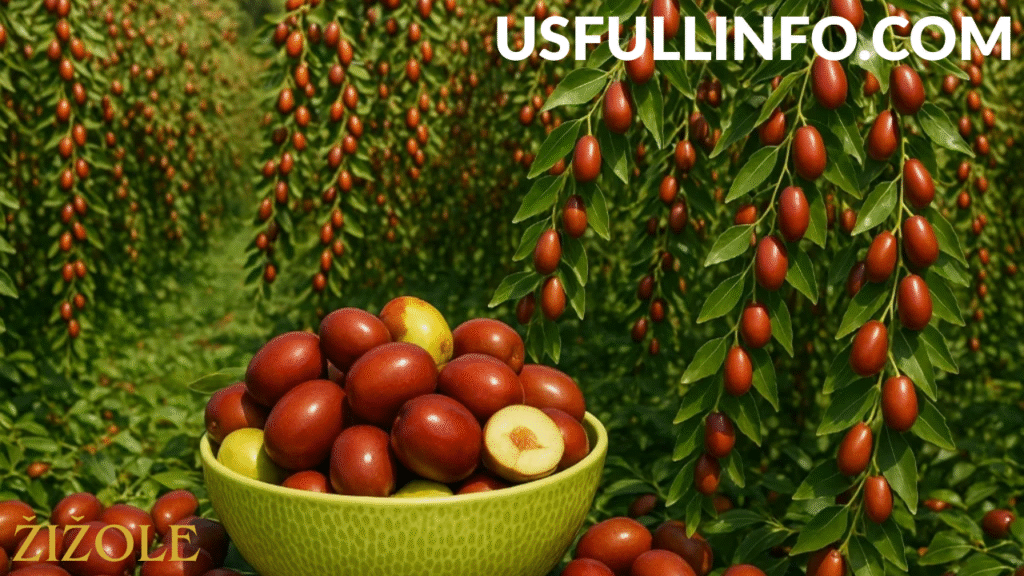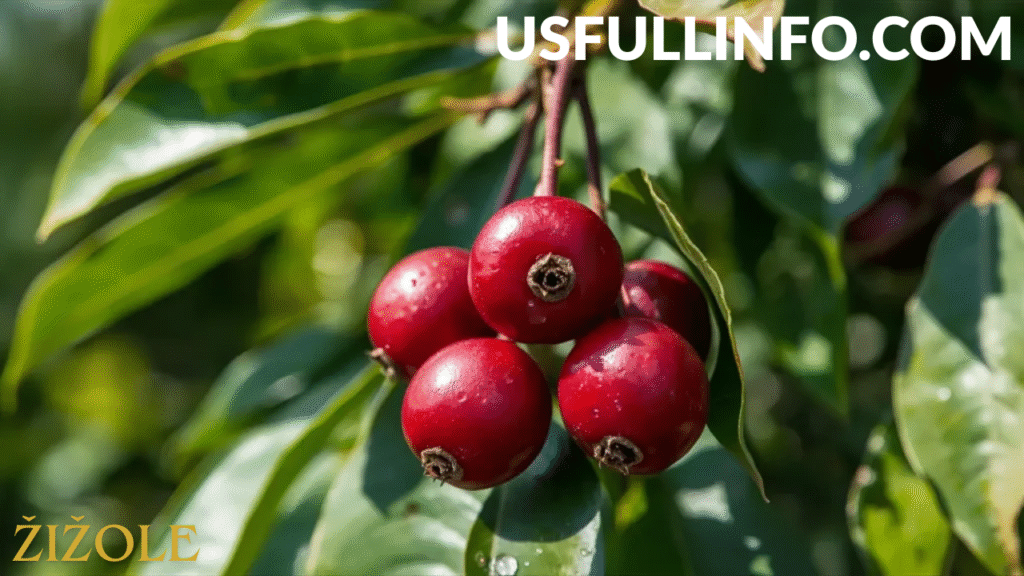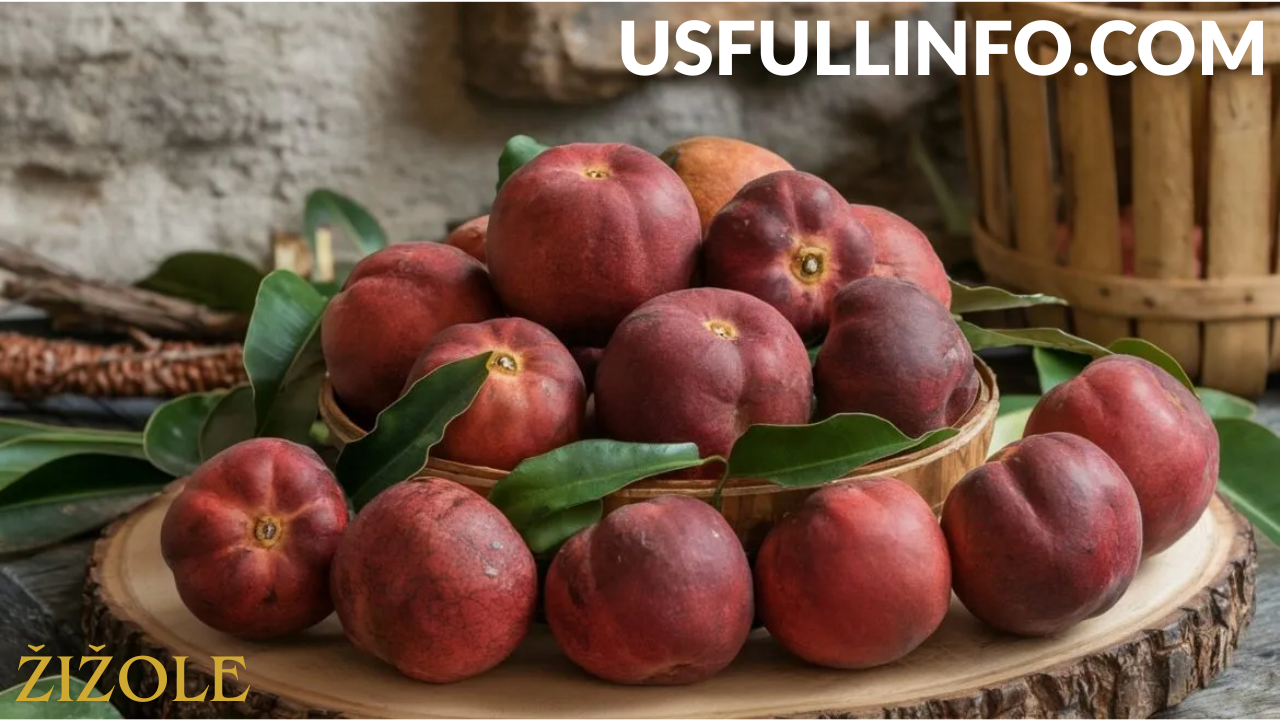Introduction: What Are Žižole?
Žižole, also known as jujube fruit or Chinese dates, are small, oval-shaped fruits that have been cherished for thousands of years for their sweet taste and impressive health benefits. Originating from Asia, particularly China and the Mediterranean region, žižole have been used in traditional medicine and culinary practices for centuries. Today, this ancient fruit is gaining modern recognition for its nutritional richness, versatility, and natural healing properties.
In this comprehensive article, we will explore everything about žižole — their origins, health benefits, cultivation, uses in food and medicine, and why they are becoming a rising superfood around the world.
The Origin and History of Žižole
The history of žižole dates back more than 4,000 years. Native to Southern Asia, particularly China, India, and parts of the Middle East, žižole have long been considered a symbol of health and longevity. They later spread to the Mediterranean and Southern Europe, where they became a traditional fruit in local diets and folk remedies.
In China, the jujube tree (Ziziphus jujuba) was often referred to as the “tree of life” for its nutritional and medicinal value. Ancient Chinese medicine texts describe žižole as a natural remedy to strengthen the body, calm the mind, and promote better sleep. In the Balkan region, especially in Croatia, Slovenia, and Bosnia, žižole are a beloved autumn fruit often enjoyed fresh or dried, with their flavor and aroma symbolizing the changing of seasons.
The Appearance and Taste of Žižole
The žižola fruit is small and round or oval, roughly the size of a cherry or small plum. When unripe, it is green and crisp, similar in texture to an apple. As it ripens, the fruit turns brownish-red, developing a wrinkled skin that resembles a date — hence its common nickname “Chinese date.”
The taste of žižole evolves as it ripens:
- Unripe žižole are crunchy, mildly tart, and refreshing.
- Ripe žižole are sweet, chewy, and rich in flavor, similar to dates or dried apples.
Because of their unique taste and texture, žižole are enjoyed both fresh and dried, making them one of the most versatile fruits in the world.
Nutritional Profile of Žižole
Žižole are packed with nutrients, making them a true superfruit. They are low in calories but rich in vitamins, minerals, and antioxidants. A single serving of žižole can provide a significant boost to your daily nutrient intake.
Here’s what makes žižole so special:
- Vitamin C: Boosts immunity and supports skin health.
- Vitamin A: Promotes vision and skin regeneration.
- Potassium: Helps regulate blood pressure.
- Iron: Essential for red blood cell production.
- Antioxidants: Protects the body against free radicals and aging.
- Dietary Fiber: Aids digestion and supports gut health.
Unlike many processed snacks, žižole are naturally fat-free and cholesterol-free, making them a healthy choice for all ages.

Health Benefits of Žižole
For centuries, people have valued žižole not just for their flavor but also for their therapeutic properties. Modern science has confirmed many of these traditional beliefs. Below are some of the most notable health benefits of žižole:
1. Boosts Immunity
Due to their high vitamin C content, žižole strengthen the immune system, helping the body fight infections and recover faster from illnesses.
2. Improves Sleep Quality
Žižole have natural sedative properties. Traditional Chinese medicine uses them to calm the nerves and promote restful sleep, thanks to compounds like saponins and flavonoids that have mild tranquilizing effects.
3. Enhances Digestion
Rich in fiber, žižole support a healthy digestive system. They prevent constipation and promote a balanced gut microbiome.
4. Supports Heart Health
Žižole help maintain healthy cholesterol levels and regulate blood pressure. Their potassium and antioxidant content protect the heart from oxidative stress and inflammation.
5. Promotes Healthy Skin
Antioxidants in žižole combat signs of aging and protect skin cells from UV damage. Regular consumption can result in brighter, more youthful-looking skin.
6. Reduces Stress and Anxiety
Žižole contain bioactive compounds that can help lower cortisol levels, promoting relaxation and emotional balance.
7. Strengthens Bones
Packed with minerals like calcium and phosphorus, žižole contribute to bone density and strength, making them beneficial for aging adults.
Culinary Uses of Žižole
Žižole are incredibly versatile in the kitchen. Depending on the stage of ripeness, they can be used in both sweet and savory dishes.
Here are some popular ways to enjoy žižole:
- Fresh: Eaten raw as a snack, similar to apples or grapes.
- Dried: Consumed like dates or raisins — chewy, sweet, and energy-dense.
- In Tea: Dried žižole are often boiled to make calming herbal teas.
- In Jams and Syrups: Used in traditional Mediterranean and Asian recipes.
- In Baking: Added to breads, cakes, and cookies for natural sweetness.
- In Traditional Liquor: In the Balkans, žižole are sometimes fermented to make homemade spirits.
Their rich flavor and nutritional value make them a perfect ingredient for health-conscious recipes.
Growing and Harvesting Žižole
The žižola tree (Ziziphus jujuba) is hardy and adaptable, thriving in both warm and dry climates. It can grow in poor soils and withstand drought, making it ideal for Mediterranean regions and parts of Asia.
The tree typically blooms in late spring, producing small yellow-green flowers. The fruits mature by late summer or early autumn, depending on the climate. Harvesting is usually done when the fruits turn reddish-brown and slightly soft to the touch.
In Croatia, Italy, and Greece, žižole harvest season is celebrated as part of local tradition, where the fruits are enjoyed fresh from the tree or dried for winter storage.
Žižole in Traditional Medicine
In traditional Chinese and Ayurvedic medicine, žižole have been used as a natural remedy for insomnia, anxiety, and digestive issues. The fruit, seeds, and even the bark of the tree are utilized for their healing properties.
Common traditional uses include:
- Boiling dried žižole to make a calming tea for stress relief.
- Combining them with herbs like ginseng or ginger to boost energy.
- Using jujube seed extract as a sleep aid and anti-anxiety supplement.
These ancient practices are now being validated by scientific research, which supports the role of žižole in improving mental and physical well-being.

Modern Applications and Rising Popularity
In recent years, žižole have gained international popularity as part of the global health and wellness movement. They are being rediscovered as a natural alternative to processed snacks and a source of plant-based nutrients.
Modern nutritionists praise žižole for their anti-aging properties, low glycemic index, and ability to improve sleep without side effects. As a result, health food brands have begun incorporating žižole extracts into teas, energy bars, and supplements.
This resurgence mirrors the broader trend toward ancient superfoods — simple, natural ingredients with powerful health benefits.
How to Store Žižole
Proper storage ensures that žižole retain their freshness and nutritional value.
- Fresh žižole: Keep them in a cool, dry place or refrigerate for up to a week.
- Dried žižole: Store in an airtight container away from moisture and sunlight. Properly stored dried fruits can last several months.
Potential Side Effects and Considerations
Žižole are generally safe for most people when eaten in moderation. However:
- Individuals with low blood sugar should consume them carefully, as they may lower glucose levels.
- People taking sleep aids or sedatives should consult a doctor before using žižole supplements.
Otherwise, they are an excellent addition to a balanced diet.
Conclusion
Žižole are more than just an ancient fruit — they are a bridge between traditional wisdom and modern nutrition. From their crisp, apple-like freshness to their chewy, date-like sweetness, žižole offer both taste and health in every bite.
Their ability to boost immunity, enhance sleep, support digestion, and promote radiant skin makes them one of nature’s most complete superfoods. Whether eaten fresh, dried, or brewed in tea, žižole deserve a place in every healthy lifestyle.
As people around the world rediscover the power of natural foods, žižole are set to become a global favorite once again — proving that sometimes, the oldest remedies are still the best.







